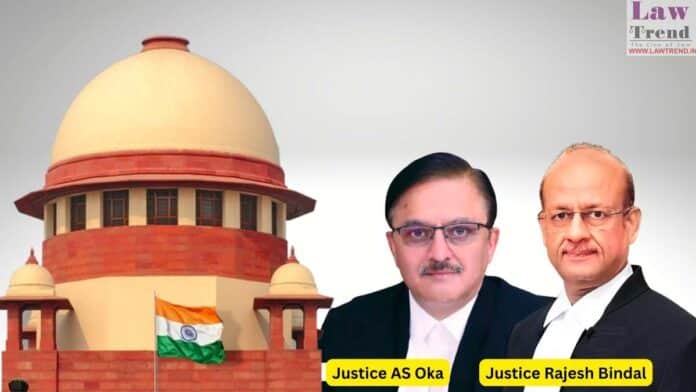The Supreme Court on Tuesday said that showing “undue leniency” in cases of brutal crimes such as rape and murder on the ground that the convict may reform will adversely affect the public confidence in the legal system and the courts must consider rights of the victims as well.
The court passed the order on an appeal filed by cab driver Shiva Kumar, convicted for the rape and murder of a 28-year-old BPO employee in Bengaluru in 2005.
It said, “The facts are such, which will shock the conscience of any court”.

Kumar was convicted of the offence of kidnap, rape and murder under IPC sections 366,376 and 302 by a trial court, which awarded him to undergo rigorous imprisonment for the rest of his life.
The high court upheld the trial court judgment.
According to the law, a convict serving a life term becomes eligible for being considered for premature release if he has served 14 or more years of the actual sentence.
On Tuesday, the SC bench comprising Justices Abhay S Oka and Rajesh Bindal modified the life imprisonment awarded to Kumar so that he does not get any remission and is released only after completing 30 years of the actual sentence.
“The court, while considering the possibility of reformation of the accused, must note that showing undue leniency in such a brutal case will adversely affect the public confidence in the efficacy of the legal system. The court must consider the rights of the victim as well. After having considered these circumstances, we are of the opinion that this is a case where a fixed-term sentence for a period of thirty years must be imposed,” the bench said.
It added, “We direct that the appellant shall undergo imprisonment for life. We also direct that the appellant shall be released only after he completes thirty years of the actual sentence.”
The bench said a constitutional court can always impose a fixed-term sentence, “so that the benefit of statutory remission, etc. is not available to the accused”, considering the gravity and nature of the offence and other relevant factors even if it finds that the case is not falling in the category of rarest of the rare’ (warranting death penalty).







